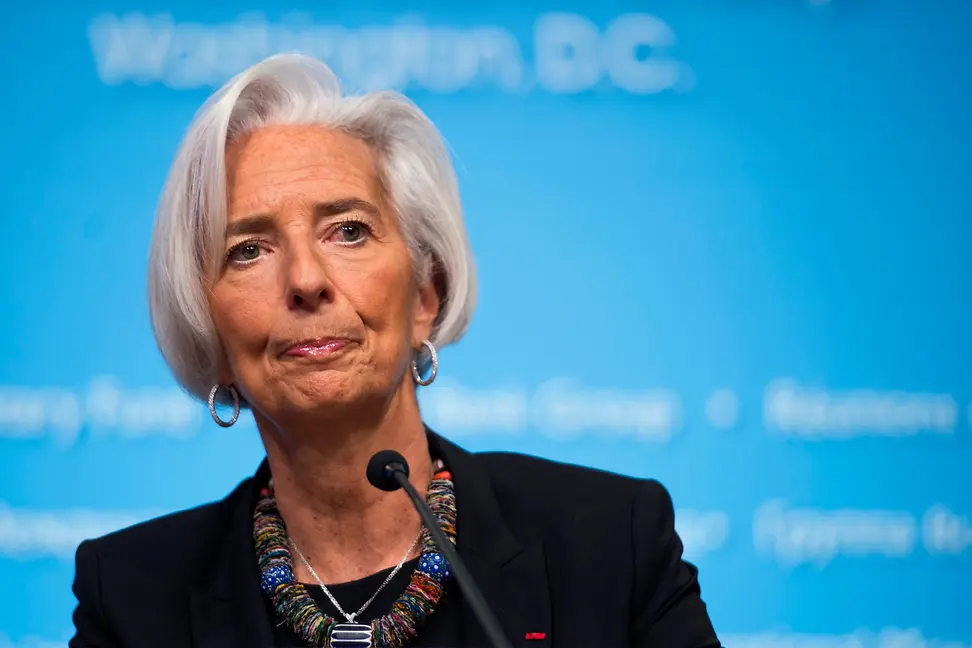- Home
-
Private banking
-
LGT career
Raging inflation is an extreme test for central bankers. This struggle affects investors. But you can minimize the effects with a sound long-term strategy.

Many investors will understandably be worried by the daily stream of gloomy news about inflation, interest rates and ineffective central bank policies. The bad news is central banks struggling to cope with inflation can affect your financial planning. For example, prolonged high inflation can erode your savings and affect share prices in your portfolio. The good news is there are ways to minimize the long-term effects, and your investment advisor can help make sure you are well-positioned to ride out market storms.
Economies need a low level of inflation - say around 2% - to maintain healthy growth. However, inflation in Europe is currently 8.8% and this higher level threatens economic security. Left unchecked, it will erode savers' spending power because returns on their cash holdings cannot keep up with rising prices. That also discourages people from saving, reducing their financial security.
Higher inflation also eats into the spending power of workers' wages. This can lead to a dangerous rising spiral of higher wage demands, which usually force producers to hike prices further. A key task for central banks is to beat high inflation down by hiking interest rates and controlling the flow of money into markets.

Over the last 14 years, policymakers worldwide had favored loose monetary policy, with ultralow or negative rates, and money flowing into markets to support growth. However, inflationary pressures from the pandemic and the Ukraine war have forced central banks to tighten policy again by hiking rates and slowing the money flow.
These higher interest rates affect individuals because their mortgages and other debts cost more to service, so these private consumers have less money to spend. It also means companies have higher interest payments on their debts, which can affect their profits and cashflows, and therefore share prices in your portfolio. If these factors get out of control, it becomes difficult for companies to plan prices and make sustainable profits, potentially leading to a recession and a more prolonged market downturn.
The first step for investors to tackle higher interest rates is to think about debt. A large part of younger investors is not used to high debt cost. Interest burden can quickly become uncomfortable. Self-reflection is key when talking about unnecessary debt or leverage, as times are changing.
Deposit rates on cash deposits may somewhat compensate for inflation, at best, but having a minimum of debt to refinance always pays off. However, according to David Wolf, head of research content and publications, cash is not dead. "Even though most available deposit rates won't compensate for inflation, a minimal cash quota in the overall asset allocation remains mandatory even in inflationary times ahead. You still need a cash buffer, regardless of your investment horizon. The sluggishness of commercial banks in raising their rates is well known, but this should not dissuade you from following the investment principle of diversification and keeping an emergency insurance of liquidity.
Equally, you may be nervous about equity markets, but at least these investments have a chance of preserving value. Shares represent real value and in general grow in nominal terms. If you leave your money in cash, you are guaranteed to lose around 5% or more a year, in real terms, at current levels of inflation and deposit rates.
So, only keep the minimum necessary in cash and invest the rest of your money in real assets such as shares, precious metals and debt-free real estate. Equities provide the best returns over the long term. "Within equities, the same rule as always applies, which is to diversify across a range of assets, sectors, geographies and investment styles, to spread risk," said Wolf. "This strategy tends to provide the most stable returns over time. This remains valid in an environment of weak fiat money."

When talking to your investment advisor, it can also be helpful to understand how inflation and rising interest rates affect various asset classes. Here is a snapshot. The nominal price of precious metals, such as gold, tend to rise over time in an inflationary environment. The real value remains about the same. In the meantime, the value of a fixed income investment like a bond is reduced in real terms. Coupons need to compensate at least for both, risk and inflation.
Low interest rates have supported equity markets by making cheap finance available to companies, fuelling their expansion. Higher rates are dampening this effect - although many argue this has simply made prices more realistic. Share prices are certainly better value for new and regular investors now.

But market sentiment in reaction to events such as central bank action is also a key price driver. Joe Nellis, professor of global economy at Cranfield School of Management, said if the market is not confident central banks can control inflation, that increases its perception of risk. "Investor nervousness is partly due to central banks' slow response to inflationary pressures," he said. "But even if they had reacted sooner, there wasn't much they could have done. Central banks are struggling because they're on a fine edge between inflationary pressures and recession."
Markets are concerned that much of the inflation so far has been caused by temporary factors such as supply chains disrupted by the pandemic and Ukraine war, said Nellis. But a wage-price spiral is boiling up. If that spiral takes hold, it becomes more embedded in the economy and harder to stop.
"Another problem is that central banks will struggle to unwind loose monetary policy because all economic stakeholders have become hooked on cheap money, like a drug," Nellis said. Some people will face financial difficulties when their low fixed-rate mortgages end, and loan defaults are inevitable, he added.
Wolf said ultra-low and negative interest rates have sedated the markets for years. Markets are slowly waking up from this stupor as we move away from cheap money. "Galloping inflation is a difficult situation but don't lose your head. Irrational investors tend to underperform the market. A sophisticated, long-term strategy featuring a stable, well-diversified portfolio should temper the effects of central bank policies. That is the essence of our private clients' investment strategy. I recommend talking to your relationship manager to seek reassurance that you are well-positioned to preserve your money in stormy times."
LGT’s experts are always busy analyzing global economic and market trends. Our research publications on the international financial markets, sectors and companies will help you make informed investment decisions.